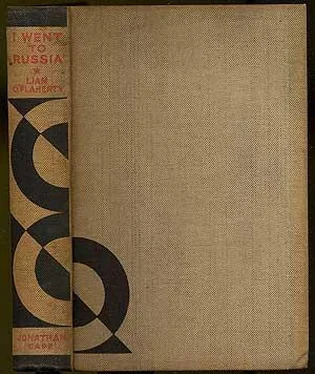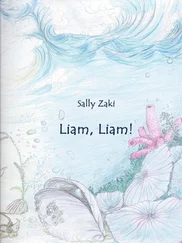A third woman came into the mess room with food for me. She was the mess room attendant, a peasant woman called Dunya. She was of the type that Tchehov loved to paint in such a melancholy fashion; but whether the type had been relieved of its melancholy by the death of Tchehov or by the Bolshevik Revolution or had never been melancholy, I swear I have rarely seen a woman worker of her class look more happy or good humoured. There was nothing of the servant in her. Neither was there anything of the arrogance of the freed servant. I hate servants, whether they are lords waiting on a king, or blowsy old harridans from the slums waiting on tiny city clerks. The whole race of those, who say ‘sir’ and ‘madam’ and ‘master’ and ‘mistress’ with awe in their voices and a crouch in their backs, is loathsome to me. Even those who shiver in servile ecstasy when they speak of the Prince, or of the Flag, or of the latest public hero.
Dunya was not good to look at. She had the high cheekbones of the Slav. Her face was pale and worn with toil. She was over forty and she had borne children. She had obviously worked from childhood. And she was a peasant, a child of the earth. She had lost the freshness of youth, that supple roundness which is the birthright of all things born of the earth, be they foals, or saplings, budding flowers, or girls at the period of their mating. And just as ageing trees become furrowed, scarred, rough to the touch, cumbersome in their swaying, poor in leafy ornaments, so had this woman become rough and devoid of comely beauty. Her beauty had sunk into her bones, to feed their shrivelling form. But she had dignity, as the old oak has dignity. Her smiling kindness was like the gesture of an old tree that sends out shoots from its stem. They die without bearing fruit, but they are a tribute to eternal beauty.
Dunya was the first real Russian peasant I had ever seen, although I had read a great deal about the Russian peasant and had almost come to believe that he was something essentially different from the rest of earth’s children. She convinced me that there was no difference between her and peasants of other countries. But there was a vast difference between her and the other Bolshevik citizens I had met on the ship. She did not have the ambition to better herself socially, to change her kerchief for a silly hat; to make all men and women equal, because she felt inferior to bourgeois women who had good perfume and rich clothes. Such, I believe, is the basis of Levelling; envy. She was content to be herself. That is why she was beautiful. What she had received from the earth sufficed her.
Perhaps, if I could speak to her freely in her own language, she would have horrified me by talking about the liquidation of the peasant or some such drivel. But I greatly doubt it. She looked too happy to really want to change anything, or to worry herself with insane lusts for the reformation of mankind. Yet I saw a difference between her and our own peasants which made me see the real basis of Bolshevik power. The woman’s brow bore no trace of the fear that is constant in the faces of our peasants. Fear of God, fear of the lord, fear of the government, fear of the earth? She had somehow become free and she was aware of the fact. She feared neither me nor anybody else. She felt herself my equal and she felt herself the equal of the whole world. I could feel that, by the way she gave me food and moved about and bantered with the other girls while she served me.
And then I watched the other two girls and saw that I did not like them so well. They were city born, from Leningrad. They were young and pretty, but I could see greed and restless ambition in their eyes. Their goal was not constancy to the earth, but the beauty parlours of London and Paris brought to the Soviet cities as the spoils of victorious Communism. They smiled and giggled and were friendly, but for them I was not a human being, but a type of the enemy Their men were going to conquer. There was a hardness in their faces which I did not like. They were slaves of the new god, already become cogs in the Bolshevist machine.
As I left the mess room, the thought struck me that Dunya and the scores of millions of her brothers and sisters, the peasants of Russia, would also soon cease to be children of the earth. Into every village would come the red ensign with its sickle and hammer instead of the cross, making every soul convert to this great crusade for making all humanity free to better its social position, bringing ambition and envy and organisation, turning the whole mass of Soviet citizens into a machine for the liquidation of everything that is opposed to Communism. So were the peasants of England organised and destroyed, in the effort to make British all that was not British, in the effort to make even the pagan Zulu wear the dog-collar of British civilisation.
I went about among the crew, watching them at their work. They too were jolly lads. In some faces I saw the restless ambition of the pretty girls, a brooding envy. But in most faces I saw Dunya’s genial kindliness and sense of freedom. I was amazed to find that they were Conscious of their freedom, for I myself have worked on ships and I know how our seamen are conscious of their enslaved condition, how they bow down before a passenger. I saw them talk to their officers in a friendly fashion, as equals. Although there was no sign of inefficiency or of idleness, there was no harshness of command. Each person worked the ship as his own property, as the complement of his own being. Yet, instead of being pleased at this, I felt worried. I did not feel happy or comfortable, simply because I felt alien, or because I felt that they were not really free, that they were even less free than our enslaved seamen, that some mysterious power stood over them.
Suddenly I came upon the doctor, who introduced himself. We sat on a hatch and lit cigarettes.
‘Well!’ he said. ‘You like our ship? How do you like?’
‘Amazingly interesting,’ I said.
‘Good,’ he said. ‘I am glad. You are a writer, yes? The mate says you write books.’
‘Yes. I am a writer.’
‘Splendid. I also. I am very interested in all literature and art. It is for that, principally, we make revolution, to give everybody love of beauty. Good. I hope we shall be friends. Yes?’
‘I hope so indeed.’
I immediately liked him. His face was extremely intelligent. He had fine clear eyes and he looked one straight in the face, boldly. His lower lip was heavy and his jaw was good. His nose was short and stubby. He was obviously not of proletarian origin; probably a Jew, but of a type that was not at all Semitic. As he talked, I gathered that he had no sense of humour, that he was ambitious, strong-willed, interested in his own work as a scientist and in all the world as a greedy explorer. His voice was deep, but resonant and pleasant to hear.
‘I want to talk to you a great deal,’ he said, ‘in order to improve my English.’
I bowed, amazed at the simplicity with which he admitted that he intended making use of me. So typically Russian, even though it was probably Jewish! So have these Russians come among us for the past hundred years, as simple children, amusing us by their childish frankness and at the same time, gradually assimilating everything they could steal from us.
‘My position on this ship,’ he said, ‘is perhaps different from that of a doctor on your ships. Of course, I treat crew for sickness and even perform operations. I am proud because I cut off a finger in Hamburg very well. But I am also organiser and teacher.’
‘Really? What do you teach?’
Then he made use of a phrase that I was destined to hear perpetually in Soviet Russia. Striking his right palm into his left , he cried:
‘The situation is such.’
Читать дальше












